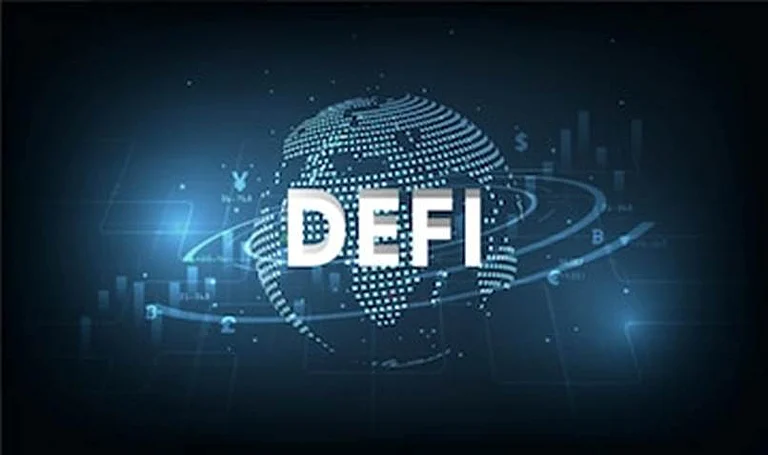In the high-speed world of decentralized finance (DeFi), governance has become a pillar of protocol growth, resilience, and community trust. Though a lot of limelight is usually given to glossy token launches, supernova gains, and novel financial products, governance is the dull, yet usually undervalued machinery that renders DeFi systems just, safe, and responsive. It is important to know why governance is important in DeFi, whether you are a builder, investor, or simply a bystander.
Understanding Governance in DeFi
DeFi governance is essentially the decision-making that drives how decentralized protocols function, develop, and distribute resources. Top-down governance is induced by institutions and government bodies in the traditional financial system. DeFi attempts to be bottom-up, community-funded through DAOs or other on-chain media.
Most DeFi protocols possess native governance tokens whose owners vote on significant choices. These choices range from protocol upgrades, fee mechanism changes, allocation of treasury funds, to partnerships. It's an extremely simple concept but one that is disruptive: power shared among a set of stakeholders rather than one.
This decentralized governance model ensures that one cannot dictate the direction of a protocol at whim. Rather, the users themselves become invested stakeholders in determining the destiny of an ecosystem upon which they depend.
Why Governance is Needed for Sustainability
DeFi protocols, as with all financial systems, must evolve to accommodate new realities — market trends, security concerns, regulator actions, and user culture. Governance enables the flexibility and framework through which such evolutions can be made transparent and democratic.
Without solid governance, protocols can become mired or are susceptible to bad actors. Consider a DeFi protocol that finds a disastrous flaw in its smart contracts. Having the possibility of responding in a timely manner — by means of governance mechanisms for emergency upgrades or modifications — might mean the difference between stability and destruction.
In addition, governance facilitates progressive decentralization. The majority of DeFi projects begin with a group of founders that establishes the initial foundation and framework. Gradually, governance allows for a progressive transfer of decision-making power from the founding group to the community so that the long-term existence of the protocol will not be at the mercy of any specific group or entity.
Governance and Community Engagement
A robust governance system invites participation and ownership by the community. If users feel that they actually do have a say in the direction of a protocol, they are more likely to stay active, submit ideas, and promote the ecosystem. That makes for a feedback loop: higher participation creates more considered governance, which results in better protocols with further adoption.
Governance also aids in aligning incentives. Token-holding voters have a stake in making choices that are good for the long-term well-being of the protocol, as the tokens' value typically depends on its success. Such alignment can promote healthier growth and innovation and inhibit the type of short-term thinking that has tainted some centralized crypto initiatives.
All the same, community governance is not perfect. Voter disengagement, low participation, and whale tyranny, where tokens are dominated by a small group of big holders, can disenfranchise the decentralized ethos. Good governance design needs to counter such failures — e.g., by means of quadratic voting, time-weighted voting, or reputation systems.
Security and Accountability
Security is of highest importance in DeFi, where value is held by smart contracts and billions of dollars' value are usually at risk. Governance is central to maintaining and enhancing security arrangements. Governance enables communities to respond rapidly to vulnerabilities or enhance security frameworks in the face of increasing threats.
Apart from it, there is governance that comes with accountability. When decisions are taken in the open and transparent way, people can see who suggested what, how they voted, and the result. This openness brings about trust and prevents corruption or backroom politics — far removed from old-style banking where decisions usually take place behind close doors.
Decentralized governance, if done correctly, is a checks and balances system such that one participant cannot subvert the protocol for their own benefit.
Innovation Through Collaboration
Maybe the most powerful result of decentralized decision-making is potential for innovation. Since decision-making is inclusive and open, there are many different voices that can introduce new ideas, experiments, or options that challenge the limits of what is possible in finance. This wisdom-of-the-crowds model constructs solutions that are more innovative and resilient than the solutions offered by centralized groups.
For instance, most DeFi protocols have experienced successful community-initiated programs that innovated novel yield farming models, cross-chain bridges, or novel insurance products. Ideas like these, which were proposed and approved by the community, tend to originate from individuals or organizations who are not part of the core development but possess profound knowledge and interest in the ecosystem.
When governance is excellent, it can become users' co-creation — individuals who use not only a protocol but contribute to determining its path.
The Risks of Bad Governance
While exciting, DeFi governance is not without danger. Weakly designed governance structures risk institutional paralysis, manipulation, or abuse. For example, if the governance tokens end up in the hands of a minority group, then token holders can then demand alterations that serve their own interests at the cost of the remainder of the ecosystem.
Another frequent problem is voter disillusionment or burnout. The more settled things get, the more proposals for how things are run there are, and users can find it difficult to keep up or feel that their vote doesn't count. This results in default centralization of choice with policy being dominated by only a portion of the community.
To solve these issues, all projects are currently testing innovations in governance architecture — i.e., delegated voting (where one transfers voting rights to trusted agents), off-chain signaling platforms (such as Snapshot), and incentive schemes that reward engagement.
The Future of Governance in DeFi
As DeFi expands, governance will be ever more important. Greater regulatory attention is scheduled, and projects need to show they are capable of governing themselves effectively. Healthy governance frameworks can be a synergy between the visions of decentralization and the reality of stability, compliance, and protection of users.
More innovation in governance platforms is to be expected, like decision-making with the help of AI, enhanced voting interfaces, and cross-protocol governance models that align decisions across platforms. What is learned in DeFi governance could possibly influence democratic systems in the future beyond finance — social media, content creation, and public infrastructure.
Ultimately, governance is a question beyond the technicality of DeFi protocols. It's the mortar that holds decentralization, accountability, and creativity together. By realizing and participating in governance, users are no longer consumers of DeFi — they are custodians of a new era of finance.

























